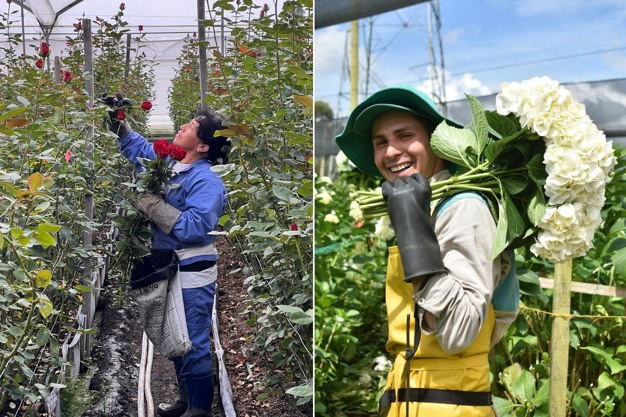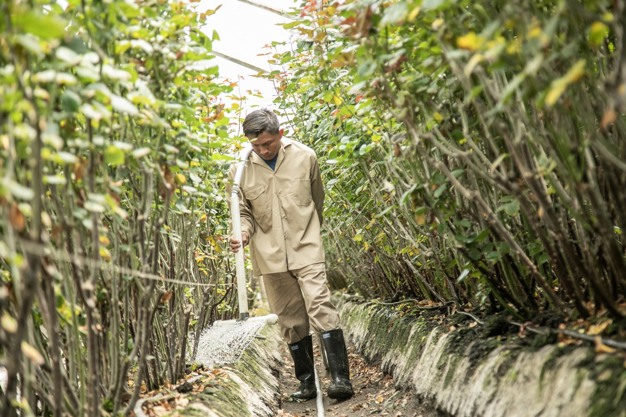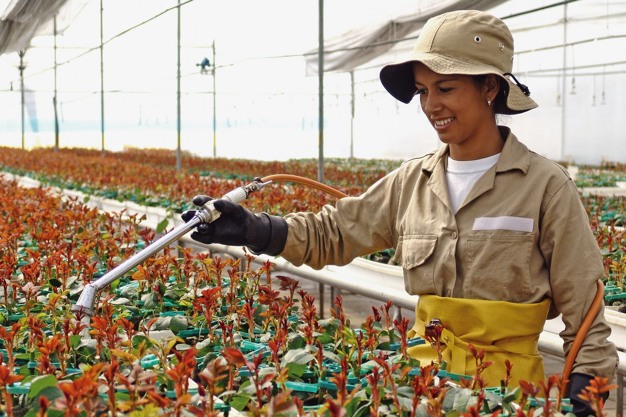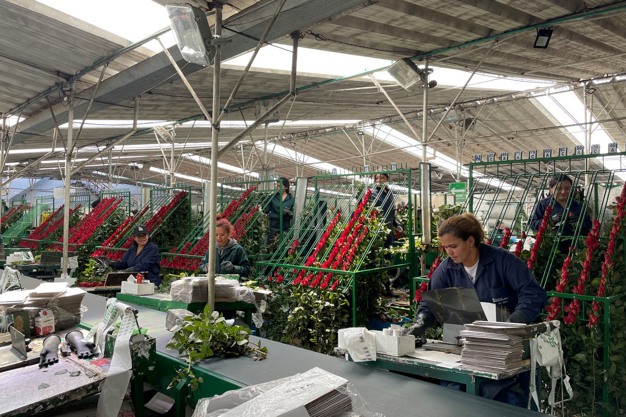"Floriculture continues to be one of the most important sources of formal employment in the rural areas of Colombia. Throughout the social and economic crisis imposed on the world by the pandemic, we have made our best effort to maintain the 200,000 formal direct and indirect jobs generated by this activity", said Augusto Solano, CEO of Asocolflores.

"If we add to the above the fact that during Saint Valentine's, 27,000 temporary jobs are generated, which also comply with all legal requirements, it is easy to demonstrate that this sector brings forth a significant contribution to the Colombian labor life."
According to Paola Rojas, Director of Corporate Responsibility and Shared Value of Asocolflores, "during this season we developed our employability support strategy, carried out in four stages: Notices, Vacancies, Registration and Recruitment, and Hiring".
Thus, Asocolflores promotes good practices amongst its members throughout the hiring process so that, with the support from employment agencies, available vacancies can be recorded and communicated, and job opportunities can be advertised in different media; and finally workers may be hired within their areas of influence.

Furthermore, "we promote this season's jobs amongst the rural youth of the country as a chance to become acquainted with the labor stability that the flower sector promotes. Likewise, we work directly with public organizations. In this way, we advertise in the flower-growing areas eventual job opportunities that Flowers of Colombia may generate during the season", Rojas pointed out.
The most exported variety for this holiday is the rose, red roses mainly, which represent around 90% of the total exported. Nevertheless, for this occasion, we also export carnations, alstroemerias, chrysanthemums, hydrangeas, lilies, and many more of the 60 flower varieties that the country has.

On Valentine's Day, the principal destination is the United States, the country that concentrates approximately 85% of the shipments. However, Flowers of Colombia also reach far-away lands such as Canada, Japan, Spain, and the United Kingdom, to mention just a few of the 100 countries to which flowers are exported.
Much of the success of exporting flowers depends on the logistics chain. Therefore, last January, Asocolflores implemented its so-called Petal Plan, a security and coordination initiative that involves all the national authorities and the different actors of the export chain to avoid illicit practices and support the transport and cargo flow.

Thus, Colombian flower growers work to generate even more jobs in rural areas during Valentine's Day so that their highest quality flowers are exported in time to supplement beautiful stories of love and friendship around the globe.
For more information: Asocolflores
Asocolflores
www.asocolflores.org
